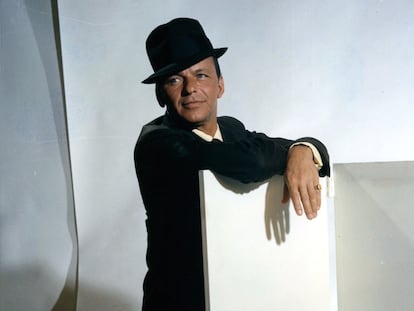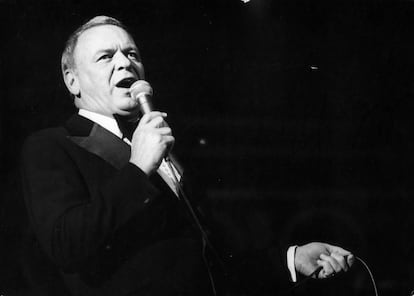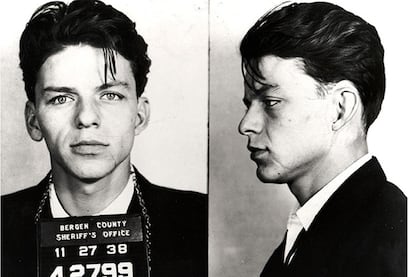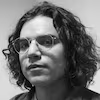What was Frank Sinatra’s relationship with the Mafia?
Perhaps counterintuitively, ‘Ol’ Blue Eyes’ had friendships with some of the most well known mobsters of his time, but he also rubbed elbows with several Presidents of the United States

Frank Sinatra consistently denied having any connections to the Mafia. Questions and rumors about the mob followed him throughout his entire career, but the singer always dismissed the allegations or responded angrily to them, except with one person: the comedian Don Rickles.
Rickles was known for being an insult comic, making fun of his audience. He met Sinatra during a show in Florida and made fun of him, even highlighting his bad temper. “Make yourself at home, Frank. Hit somebody!,” he joked. “Everybody around couldn’t believe I had the ‘macaroons’ to say this to him”, he later told David Letterman. “When I came home my cousin was on a hook in the living room”. The jokes he made about Frank often involved his apparent links to the mob, something that was widely rumored, and he even joked about murders. The singer always laughed and smiled at the jokes, and considered Rickles to be one of his closest friends. But the jokes made the audience wonder, how much of what Rickles said was true?
After Sinatra’s death, the FBI released the records they kept on him since the 1940s. The documents didn’t confirm Sinatra was linked directly with any type of criminal activities, but they did give a glimpse on why the U.S. Government was concerned about alleged Communist and Mobster ties, devoting decades to follow Sinatra’s activities and relationships.
The investigation started with a letter in Washington. The letter showed concerns about the effect of Sinatra’s music on youth which -it said- produced “hysteria” in young girls: “How easy it would be for certain-minded manufacturers to create another Hitler here in America through the influence of mass-hysteria!”. John Edgar Hoover, then director of the FBI answered the letter and started a file that would be filled with Sinatra’s life details for over 40 years. The name of the author of the letter has never been revealed.

The beginning
Frank Sinatra gained popularity as the lead singer of the Tommy Dorsey band, which he joined in 1939. As his popularity and success grew, Sinatra wanted Dorsey to allow him to record solo songs. Dorsey let him record a few songs in 1942, after which he wanted to start a solo career. He was doubtful because his contract with Dorsey gave him 43% of Sinatra’s lifetime earnings in the entertainment industry. After a legal battle, they settled and Dorsey let Sinatra go.
Not long after, rumors that Sinatra’s mobster godfather, Willie Moretti, who helped Sinatra book his first shows in New Jersey before joining Dorsey, coerced the band leader to let Sinatra out of his contract holding a gun to his head. This was later fictionalized in Mario Puzo’s novel The Godfather with the character Johnny Fontane (played by Al Martino in Francis Ford Coppola’s film adaptation). Some said Dorsey released Sinatra for a compensation of $1. Moretti was an underboss of the Genovese crime family and cousin of famous mobster Frank Costello.
Later, Sinatra was present at the Mafia Havana Conference in 1946, the historic meeting of United States Mafia and Cosa Nostra Leaders in the Cuban capital. The press reported that he was with Charles “Lucky” Luciano, who supposedly arranged the meeting. Some reports said that Sinatra flew to Havana with Al Capone cousins, Charlie, Rocco, and Joseph Fischetti from Chicago, who acted as the singer’s chaperone and bodyguard. Sinatra performed at the event. Years later, he said that he had no idea he was being taken to a major mob convention.
Kitty Kelley, who wrote a biography about Sinatra, says that the singer and Fischetti acted like “Sicilian brothers.” She quoted Jo-Carroll Silvers, who said that Sinatra “adored” Bugsy Siegel, even boasting to friends about how many people Siegel had killed. Around that time, there were also reports that he was a good friend of mobster Sam Giancana.

Kelley also wrote that in 1947 Sinatra was involved in a violent incident with journalist Lee Mortimer, who was responsible for some of the most scathing articles on his alleged connections to the mob. Mortimer was known for a series of books detailing crime in the United States called Confidential, which were controversial because of their sensational and salacious tone, and it included “nonfactual accounts of alleged crime-politics links, vice and scandal”, according to The New York Times. The same year, Sinatra performed at the wedding reception of Willie Moretti’s daughter.
In 1950, the Kefauver Committee was established to investigate organized crime in the U.S. Sinatra was questioned in advance by committee counsel Joseph L. Nellis to determine if he should be called to testify. In a meeting he acknowledged “knowing” or “seeing” or greeting several mobsters, including Lucky Luciano, the Fischetti brothers, Al Capone’s brothers, Meyer Lansky, Frank Costello, Bugsy Siegel and several others. The committee decided not to call Sinatra.
“Wiseguys wanted to be in Frank’s inner circle and he did his best to juggle that and not let it get too heavy, but you know some people would go overboard,” his manager Tony Oppedisano told Page Six. “Some of the guys became friends over the years and they would try to do things for him that he never asked them to do. He’d say, ‘If these guys really want to do me a favor, I wish they’d stop doing me favors!’”
In 1972 he was called along with his fellow singer Sammy Davis Jr. before a Joint Senate-House Select Committee on Crime, investigating gambling and corruption related to sport. There he denied any connections to organized crime or knowledge of any illegal activities and the committee didn’t find any wrongdoing on his part. He also chastised Members for not refuting the allegations made against him.
Other kind of friends
But Sinatra also had close relationships with presidents and presidential candidates. He actively campaigned for presidents Franklin D. Roosevelt, Harry S. Truman, John F. Kennedy and Ronald Reagan, who awarded him the Presidential Medal of Freedom in 1985, and the Congressional Gold Medal in 1997.
In the 60s, the FBI documented that Sinatra’s reputation among the Mafia was declining due to his friendship with John F. Kennedy, whose younger brother, Attorney General Robert F. Kennedy was leading a campaign against organized crime. But after Kennedy took office, he distanced himself from the singer, due to his links with the mob. Sinatra had other links with mainly Democratic politicians, but he changed alliance in 1972 when he supported Richard Nixon for re-election.
The FBI kept records of Sinatra until 1998, after his death. The Bureau never got to prove any wrongdoing on Sinatra’s part. And Don Rickles was just joking.
Sign up for our weekly newsletter to get more English-language news coverage from EL PAÍS USA Edition
Tu suscripción se está usando en otro dispositivo
¿Quieres añadir otro usuario a tu suscripción?
Si continúas leyendo en este dispositivo, no se podrá leer en el otro.
FlechaTu suscripción se está usando en otro dispositivo y solo puedes acceder a EL PAÍS desde un dispositivo a la vez.
Si quieres compartir tu cuenta, cambia tu suscripción a la modalidad Premium, así podrás añadir otro usuario. Cada uno accederá con su propia cuenta de email, lo que os permitirá personalizar vuestra experiencia en EL PAÍS.
¿Tienes una suscripción de empresa? Accede aquí para contratar más cuentas.
En el caso de no saber quién está usando tu cuenta, te recomendamos cambiar tu contraseña aquí.
Si decides continuar compartiendo tu cuenta, este mensaje se mostrará en tu dispositivo y en el de la otra persona que está usando tu cuenta de forma indefinida, afectando a tu experiencia de lectura. Puedes consultar aquí los términos y condiciones de la suscripción digital.









































